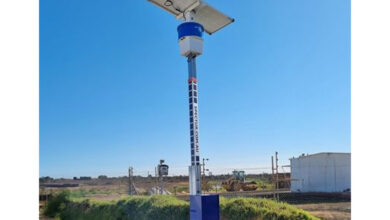How Companies are Using Data Analytics to Drive Climate Change Initiatives

Introduction
Climate change is one of the most pressing global challenges of our time, and businesses across industries are increasingly recognising their role in addressing this issue. To drive effective climate change initiatives, companies are turning to data analytics as a powerful tool. By leveraging vast amounts of data, businesses can make informed decisions, optimise their operations, and track their environmental impact. Governments are looking for the expertise of volunteers and consultants who have acquired the technical know-how to address issues such as climate change. Thus, a data scientist who has the learning from a data analysis course in pune can participate in environmental conservation initiatives both as a professional and as a volunteer.
This article explores how companies are using data analytics to drive climate change initiatives, highlighting key strategies and real-world examples.
Tracking Carbon Footprints
One of the primary ways companies are using data analytics is to track and reduce their carbon footprints. By analysing data on energy consumption, transportation, and production processes, businesses can identify areas where they can cut emissions. For example, manufacturing companies can use sensors and IoT devices to monitor energy usage in real-time, allowing them to optimise processes and reduce waste. This data-driven approach not only helps companies reduce their carbon footprints but also improves efficiency and lowers costs.
Optimising Supply Chains
Supply chains are a significant source of carbon emissions, and companies are using data analytics to make them more sustainable. By analysing data on logistics, transportation, and supplier practices, businesses can identify inefficiencies and implement greener alternatives. For instance, companies can use predictive analytics to optimise delivery routes, reducing fuel consumption and emissions. Additionally, data analytics can help businesses choose suppliers who prioritise sustainability, ensuring that the entire supply chain is aligned with their climate goals.
Enhancing Renewable Energy Adoption
The transition to renewable energy is a critical component of combating climate change, and data analytics plays a vital role in this shift. Companies are using data to assess the feasibility of renewable energy projects, such as solar or wind farms, and to optimise their performance once implemented. For example, predictive analytics can be used to forecast energy production based on weather patterns, allowing companies to better manage energy resources and reduce reliance on fossil fuels. This not only supports climate change initiatives but also leads to long-term cost savings.
Improving Waste Management
Waste management is another area where data analytics is making a significant impact. Companies are using data to track waste generation and disposal, identify recycling opportunities, and minimise landfill use. For example, by analysing waste data, businesses can identify which materials are most frequently discarded and find ways to reduce or recycle them. This approach not only helps reduce the environmental impact of waste but also supports the circular economy by keeping materials in use for as long as possible.
Developing Sustainable Products
Data analytics is also being used to develop and market sustainable products. By analysing consumer behaviour and market trends, companies can identify a growing demand for eco-friendly products and tailor their offerings accordingly. Additionally, lifecycle analysis (LCA) tools allow companies to assess the environmental impact of their products from production to disposal. This data-driven approach—often implemented under the supervision of data analysts who have completed a data analyst course—enables businesses to design products that are not only sustainable but also meet consumer expectations, driving both environmental and economic benefits.
Monitoring and Reporting Environmental Impact
Transparency and accountability are essential in the fight against climate change, and data analytics helps companies monitor and report their environmental impact. By collecting and analysing data on emissions, resource usage, and sustainability initiatives, businesses can produce accurate and comprehensive environmental reports. These reports are crucial for meeting regulatory requirements, communicating with stakeholders, and demonstrating a commitment to sustainability. Advanced analytics tools also enable real-time monitoring, allowing companies to respond quickly to any issues or deviations from their climate goals.
Supporting Climate Change Research
In addition to their internal initiatives, many companies are using data analytics to support climate change research and policy development. By collaborating with academic institutions, NGOs, and governments, businesses can contribute valuable data and insights to the global effort to combat climate change. For example, companies in the tech industry are providing access to satellite data and cloud computing resources to help researchers model climate scenarios and track environmental changes. This collaboration not only advances climate science but also enhances the reputation of companies as leaders in sustainability. While the immediate objective of technology students enrolling for a data analyst course in Pune and such urban learning centres might be the career enhancement it promises, they must be aware that they are capable of, and must, as responsible citizens, contribute towards alleviating global issues such as those posed by climate change.
Real-World Examples
Several companies are already leading the way in using data analytics to drive climate change initiatives:
Microsoft:
Microsoft has committed to becoming carbon negative by 2030, and data analytics is central to this goal. The company uses data to optimise energy usage in its data centres, track carbon emissions, and support renewable energy projects.
Unilever:
Unilever leverages data analytics to enhance its sustainable sourcing practices. By analysing supply chain data, the company ensures that its raw materials are sourced sustainably, reducing environmental impact and supporting local communities.
IKEA:
IKEA uses data analytics to improve the sustainability of its products and operations. The company tracks energy consumption, waste generation, and transportation emissions, allowing it to identify areas for improvement and reduce its overall carbon footprint.
Challenges and Future Directions
While data analytics offers significant potential for driving climate change initiatives, companies face several challenges. These include data quality and availability, the complexity of environmental systems, and the need for specialised skills to analyse and interpret data. Additionally, businesses must balance their climate goals with economic considerations, ensuring that sustainability initiatives are both effective and financially viable.
Looking ahead, advancements in data analytics, such as AI and machine learning, will likely play an even greater role in combating climate change. These technologies will enable more accurate predictions, deeper insights, and more efficient resource management, further enhancing the ability of companies to drive meaningful change. Scientists and researchers who have the learning from a data analyst course that is tailored for research personnel must volunteer to leverage their technical knowledge to address climate change and its impact on human lives.
Conclusion
Data analytics is a powerful tool that is helping companies lead the charge against climate change. From tracking carbon footprints to optimising supply chains and developing sustainable products, data-driven insights are enabling businesses to make a positive environmental impact while also improving efficiency and profitability. As technology continues to evolve, the role of data analytics in climate change initiatives will only grow. By employing data professionals who have the training from a comprehensive data analytics course companies can realise new opportunities for shifting to a more sustainable future.
Business Name: ExcelR – Data Science, Data Analyst Course Training
Address: 1st Floor, East Court Phoenix Market City, F-02, Clover Park, Viman Nagar, Pune, Maharashtra 411014
Phone Number: 096997 53213
Email Id: enquiry@excelr.com





